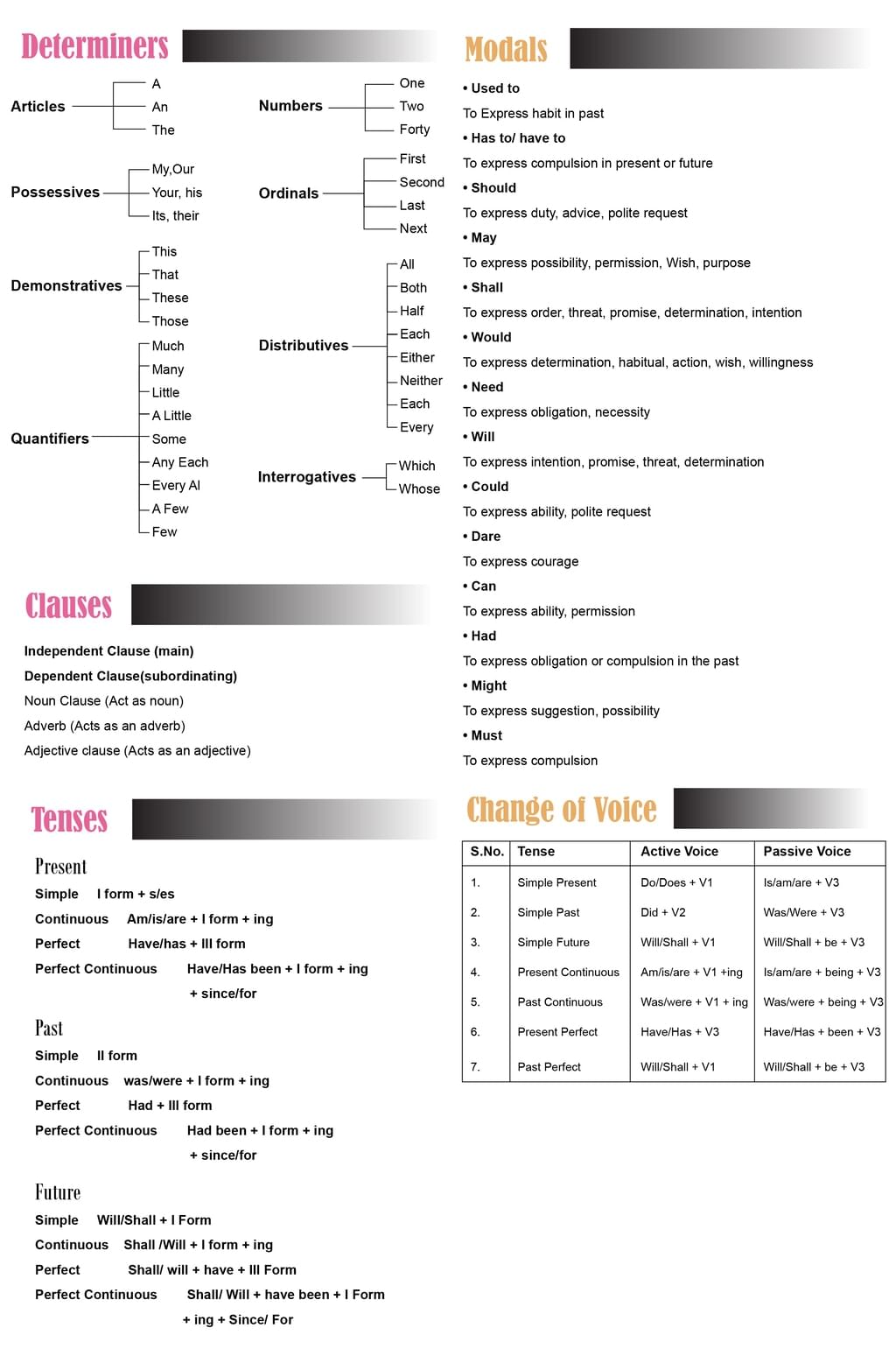Class 6 Exam > Class 6 Notes > Subject-Wise Mind Maps for Class 6 > Mindmap: English Grammar
Mindmap: English Grammar | Subject-Wise Mind Maps for Class 6 PDF Download

The document Mindmap: English Grammar | Subject-Wise Mind Maps for Class 6 is a part of the Class 6 Course Subject-Wise Mind Maps for Class 6.
All you need of Class 6 at this link: Class 6
FAQs on Mindmap: English Grammar - Subject-Wise Mind Maps for Class 6
| 1. What are the different parts of speech in English grammar? |  |
Ans. The different parts of speech in English grammar are nouns, pronouns, verbs, adjectives, adverbs, prepositions, conjunctions, and interjections.
| 2. How do you identify a noun in a sentence? |  |
Ans. A noun is a word that names a person, place, thing, or idea. To identify a noun in a sentence, you can look for words that answer the questions "who?" or "what?" For example, in the sentence "John is a doctor," "John" and "doctor" are the nouns.
| 3. What is the difference between a transitive and intransitive verb? |  |
Ans. A transitive verb is a verb that requires a direct object to complete its meaning. For example, in the sentence "She ate an apple," "ate" is a transitive verb and "apple" is the direct object. On the other hand, an intransitive verb does not require a direct object. For example, in the sentence "He laughed," "laughed" is an intransitive verb.
| 4. How do you form the present continuous tense in English? |  |
Ans. To form the present continuous tense in English, you need the present tense of the verb "to be" (am, is, are) and the present participle of the main verb (-ing form). For example, in the sentence "I am studying for my exam," "am" is the present tense of "to be" and "studying" is the present participle of "study."
| 5. What is the difference between a subject and an object in a sentence? |  |
Ans. In a sentence, the subject is the noun or pronoun that performs the action or is being described, while the object is the noun or pronoun that receives the action of the verb. For example, in the sentence "She threw the ball," "she" is the subject and "ball" is the object.

|
Explore Courses for Class 6 exam
|

|
Signup for Free!
Signup to see your scores go up within 7 days! Learn & Practice with 1000+ FREE Notes, Videos & Tests.
Related Searches

















